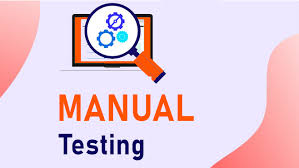
The works Manual Testing directly with a software program, much like a real user, to find errors and make sure the program satisfies quality standards. It involves modeling workflows and user interactions without using automated tools.
Certainly! Here’s a comprehensive website content draft for a Manual Testing Services page, including a compelling “Why Choose Us” section:
Key Features of Course Divine:
Career Opportunities After Manual Testing:
Essentials Skills You will Develop Manual Testing:
Tools Covered:
Syllabus:
Module 1: Introduction to Software Testing What is Software Testing? Importance and objectives of testing SDLC vs STLC Software Quality – QA vs QC Principles of Testing.
Module 2: Software Development Life Cycle (SDLC) SDLC Models (Waterfall, Agile, V-Model) Role of a Tester in each model Requirement Analysis Test Planning.
Module 3: Types of Testing Functional vs Non-Functional Testing Unit, Integration, System, Acceptance Testing Regression & Retesting Smoke & Sanity Testing Exploratory and Ad-hoc Testing.
Module 4: Test Case Design Techniques Test Scenario & Test Case Writing Boundary Value Analysis (BVA) Equivalence Partitioning Decision Table & State Transition Error Guessing Techniques.
Module 5: Test Management Test Planning and Estimation Entry & Exit Criteria
Test Deliverables Test Metrics and KPIs Risk Management in Testing.
Module 6: Defect Life Cycle and Bug Reporting Defect Identification and Reporting Bug Life Cycle & Bug Tracking Tools (JIRA, Bugzilla) Severity vs Priority Writing effective bug reports Defect Triage.
Module 7: Static Testing & Reviews What is Static Testing? Code Reviews, Walkthroughs, Inspections Checklist-based testing Review metrics and roles.
Module 8: Test Environment and Execution Test Environment Setup Test Data Preparation Test Execution Process Reporting Test Results Handling Test Failures.
Module 9: Agile Testing and Best Practices Agile Overview & Scrum Framework
Role of Tester in Agile Sprint Planning & Daily Standups Agile Metrics Exploratory & Continuous Testing.
Module 10: Final Project & Certification Prep End-to-End Testing Project Writing Test Scenarios, Cases & Bug Reports Practical Exposure to Tools Mock Interviews Assessment Certification Guidance and Exam.
Industry Projects:
Who is this program for?
How To Apply:
Mobile: 9100348679
Email: coursedivine@gmail.com

You cannot copy content of this page